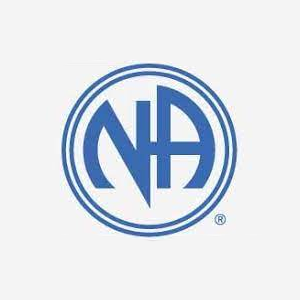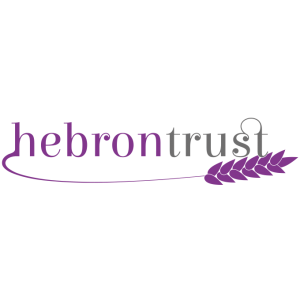Drug & Alcohol Rehab in Norwich

How Does Rehab Work?
The process of rehab helps individuals regain their balance and their overall quality of life. Rehab involves patient-focused therapy in which behaviours involving drug and alcohol dependence are targeted, coping strategies introduced, and support services provided. Individuals learn how to prevent relapse with the option of entering a residential or an outpatient programme. residential rehab requires that individuals stay at a chosen facility or recovery centre 24/7. Outpatient rehab programmes have clients maintain their day to day life while attending counselling sessions and group work.
What Happens During Residential Rehab?
Entering rehab is the initial step towards sobriety. Whilst the journey can be tough, it can be possible to avoid relapse. You might feel anxious regarding the process, so allow us to help you by taking a close look at what to prepare for during rehab.
Rehabilitation from addiction starts with a professional medical evaluation. This evaluation or assessment helps the professional decide which treatment plan is most suited to your needs. Therapy differs from one person to the next depending on the history of drug or alcohol use and the presence of comorbidities (such as depression).
Detox is an important phase of a recovery programme. It involves the safe removal of drugs and/or alcohol from the body. When detox is done under medical intervention, withdrawal symptoms can be monitored, and its severity managed. This can significantly increase the chances of success and minimise relapse.
Therapy is an important part of rehab and every aspect of treatment should be tailored to address individual backgrounds, substance dependencies, and circumstances. Interventions can range from private counselling and cognitive behavioural therapy to building coping strategies, skills, and attending group meetings.
1. Assessment

A complete medical assessment is the first step to receiving the appropriate treatment in rehab. If you are looking into residential rehab, you can expect a telephone assessment by an admissions coordinator. The telephone assessment will provide the treatment facility with the information needed to develop a unique treatment plan. The medical support staff will also have the information to manage clients through the process of detox.
Should you or someone you love require support to overcome dependence, it starts with an individual assessment. The purpose is to determine the right therapeutic approach for the management of addictions and possible comorbidities.
2. Detox

If you are addicted to drugs and/or alcohol or you have a substance in your body, you must undergo detoxification before you can proceed with a therapeutic programme. Detox is performed in an inpatient facility or a medical facility. During detoxification, the substance is gradually cleared from the body which usually results in withdrawal symptoms.
Medical detox is often recommended because it helps medical staff to oversee withdrawal symptoms that may develop. Withdrawal from drugs/alcohol can be uncomfortable and relapse may occur if not managed within a treatment centre facility. Medically assisted detox can ease the process by supporting clients and providing detox medication to reduce withdrawal symptoms. During an individual assessment, a professional will determine which approach is best suited to a comfortable detox and entry into therapy thereafter.
3. Therapy

Therapy is sought when the body is rid of substances including alcohol. The choice of being assigned to an inpatient or an outpatient service will depend on the individual assessment, finances and life commitments. Therapy that is offered in treatment ranges from individual counselling with a therapist, the attendance of group therapy, and emphasis on developing positive coping mechanisms as well as skills.
Step by Step Process for Residential Rehab
To understand your medical and mental health history.
Arrange a suitable date to begin your journey to recovery.
Begin the managed withdrawal process from substances including alcohol.
To understand the root cause of addiction and how to overcome it.
Aftercare is provided to help manage the risk of relapse.
To help heal the wounds that addictive behaviour has caused others.
Find your Nearest Rehab Centre in Norwich
The nearest rehab centre is Hebron Trust.
Address: Hebron Trust, 10-12 Stanley Ave, Norwich NR7 0BE, United Kingdom
Call 0333 4444 432 to discuss your alcohol or drug rehab requirements and any other questions you may have about the process of residential rehab.
Outpatient Addiction Services in Norwich
Outpatient addiction services are available to those who do not wish to commit to a residential facility or require a more affordable option for treatment. To help you with the best treatment, we provide a breakdown of outpatient services compared to residential ones.
While attending an outpatient programme, you will not have to stay at a facility to receive therapy. It is a more flexible solution for those who need support and therapy but cannot fully commit to a 24-hour residential programme. The purpose of outpatient programmes is to help you benefit from counselling while attending to family, work, and personal commitments.
Private Outpatient programmes involve therapy and counselling sessions provided by a therapist/counsellor. Sessions typically last up to 90 minutes. Free alternatives do exist via one of the many reputable charities in the UK (Turning Point), but it does not provide the same individualised care that private services provide.
The Benefits of Outpatient Services
Private Outpatient programmes focus on individual support that is tailored to suit the needs of those struggling with addiction. – Outpatient treatment is a more flexible setup that will help many individuals regardless of financial or work commitments. It includes the attendance of weekly sessions with a qualified counsellor. – It is a more cost-effective treatment programme in comparison to residential services.
The Challenges of Outpatient Services
While one remains at home and takes part in outpatient programmes, they could be at higher risk of relapse due to continual exposure to triggers and easy access to drugs or alcohol. Another point to consider is that free outpatient addiction services – offered by the NHS and other UK-based charities – do not provide a bespoke treatment plan and waiting lists are to be expected.

How Much Does Rehab Services Cost in Norwich?
Drug and alcohol addiction treatment within a residential setting typically costs around £1500- £4000 per week. If private addiction treatment is not an option, our aim is to help you find the appropriate recovery programme that fits your financial requirements.
The NHS and charities including Turning Point will need a self-referral to be considered for treatment. You will also find many other affordable services (such as private counselling) or free therapies and community-supported services for those with drug and alcohol addiction. These groups include AA or Alcoholics Anonymous, Narcotics Anonymous, and Cocaine Anonymous.
Support Groups in Norwich

Norwich Primary Purpose Online
Friends Meeting House, Pottergate, Upper Goat Lane NR2 1EW

Norwich Recovery
Norwich Quaker Meeting House, Upper Goat Ln, NR2 1EW

"Women Can Heal" Group
The Baptist Church Silver Road Norwich Norfolk NR3 4TE
The Pros and Cons of Seeking Treatment in Your Local Area
Pros
1. You are familiar with the area which may provide a layer of comfort/safety.
2. Loved ones can easily travel to visit or are close by.
3. You could save on the costs of travelling long distances for treatment, or free addiction services may only be offered in your area of residency.
Cons
1. A local environment means access to drug dealers or other triggers. This is more of a concern if you choose outpatient programmes.
2. Not considering locations outside your area could result in a missed opportunities for more valuable and rewarding programmes.
3. Addiction treatment services that are close by do not always offer the best standard of rehab.
The CQC website will provide information and ratings on a service in the event you are unsure regarding a particular service.


